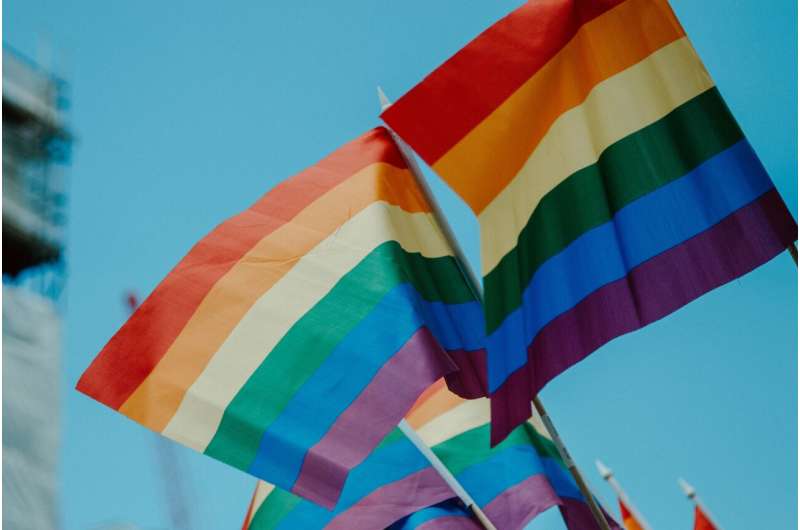
A survey study of lesbian, gay, bisexual, trans, queer, intersex, and two-spirit (LGBTQI2+) people in Québec, Canada, found that about one quarter have experienced attempts to change their sexual orientation, gender identity, or gender expression. Martin Blais of the Université du Québec à Montréal and colleagues present these findings in the open-access journal PLOS ONE on April 6, 2022.
Same-gender attraction, creative gender expression, and transness are not mental illnesses, but many LGBTQI2+ people nonetheless experience direction, advice, or formal services that aim to change their sexual orientation, gender identity, or gender expression. Formal conversion services are known to cause harm. Understanding the prevalence of conversion attempts could help protect LGBTQI2+ people, but in Canada, most research has focused on efforts to change the sexual orientation of sexual minority men.
To broaden understanding of conversion efforts in Canada, Blais and colleagues analyzed survey responses from 3,261 LGBTQI2+ adults in Québec. The survey included questions about conversion attempts experienced by participants, as well as their relationship to the people involved; for instance, parents or clergy.
About one fourth of the participants reported experiencing attempts to change their sexual orientation, gender identity, or gender expression. Fewer than 5 percent reported involvement in formal conversion services. Among participants who reported involvement in conversion services that focused specifically on gender orientation, only 55 percent reported that the goals of the service had been made clear to them; such clarity was provided to only 30 percent of participants who had experienced services focused on gender identity or expression.
The results also revealed a key role for LGBTQI2+ adults’ family members in conversion attempts and services. In addition, the likelihood of having experienced conversion efforts was higher for indigenous, intersex, transgender, non-binary, and asexual people, people of color, and people with a sexual orientation that is not monosexual (for instance, bisexual or pansexual).
In light of these findings, the researchers call for support for families to be counseled on acceptance of sexual and gender diversity, as well as improved training and professional practices for health professionals and religious therapists.
Source: Read Full Article
